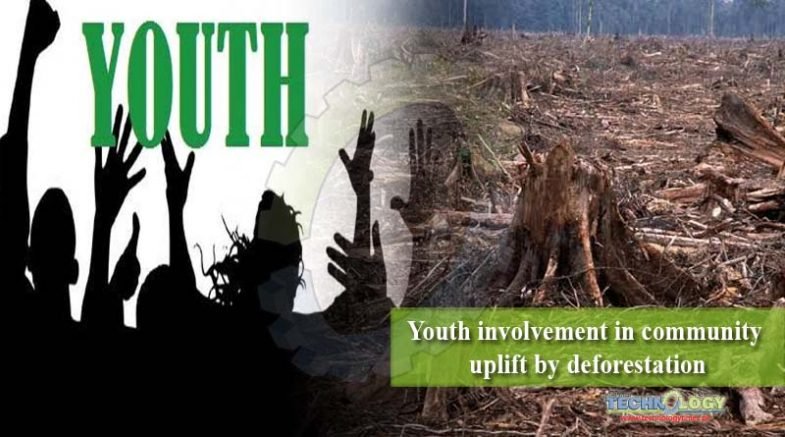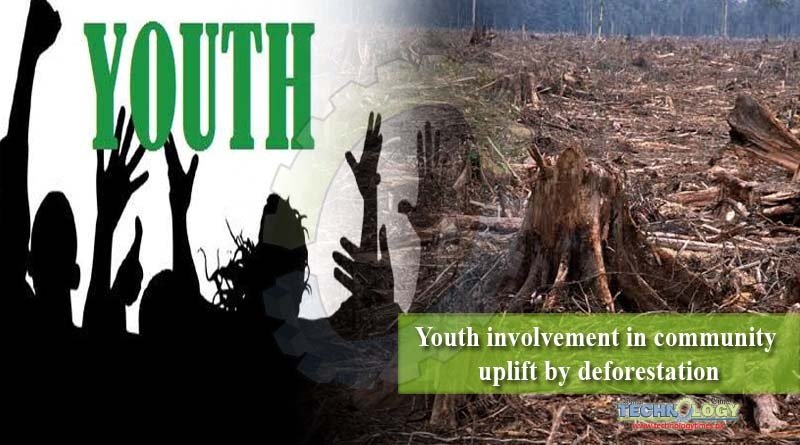Climate change and deforestation is regarded as one of the most burning issues, which in turn are linked to deadly infectious diseases can fix by involving youth.
 Pakistan has limited forest resources and the deforestation is very high and alarming here, Pakistan ranks 2nd highest in the world in deforestation. Different factors contribute to these problems viz; lack of awareness and no realization. Some educated people are also cutting down the forest for their own purposes and planting not a single tree in return, they only remove the forest for building projects and shopping malls etc. Some of them are timber mafia; they don’t realize that they are destroying beauty of nature and lungs of earth.
Pakistan has limited forest resources and the deforestation is very high and alarming here, Pakistan ranks 2nd highest in the world in deforestation. Different factors contribute to these problems viz; lack of awareness and no realization. Some educated people are also cutting down the forest for their own purposes and planting not a single tree in return, they only remove the forest for building projects and shopping malls etc. Some of them are timber mafia; they don’t realize that they are destroying beauty of nature and lungs of earth.
Deforestation leads to species extinction and enhancement of carbon dioxide emission, consequently climate change occurs regionally and globally. Thus it leads to Rain fall decline and enhanced air pollution.
Fatal diseases such as dengue, malaria and chicken gunya cases are directly linked with deforestation. During 1990s 600 cases of malaria were reported per year in Peru, and this reached to 120,000 per year and similarly in Brazil 4% reduction in forest resulted in 50% increase in malaria cases.
Other infectious viruses like Zika Virus, SARS, Ebola and Nipah virus all are linked to deforestation. The swarms of mosquitos trapped in spider web. These mosquitoes migrate toward human populations after deforestation which is reported to increase the incidents of mosquitoes born infectious diseases.
We can control deforestation and can fix these problems by involving youth.
Secretary General of UN addressed a meeting in 2008 on youth day. He emphasized that “young people are adaptable, therefore it is important that young people should actively included in local, national or global decisions on climate. In this way they can improve the world for themselves and their children. Involving young people in making changes to their life is one of the main aspects of the role they are required to play in the society”.
One of the very promising ideas is to train our students in particular and all youth in general to avoid unhealthy activities and play their role in society. They should be trained to provide services to the community.
As in Pakistan marks in exam matters a lot for our students. If we merge tree plantation and other healthy activities with tree plantation in our syllabus we can bring a change in community and its impact on ecosystem will be observed regionally as well as globally.
By planting medicinal and fruit plants will give us double benefit. So students should be trained with honesty and devotion because youth training is very much effective for environmental revolution. By providing devoted teachers we can change the mind sets of students. In this way youth can play a key role in transforming Pakistan into developed and progressive country. The main thing is to prevent the negative change.
Educated youth is more likely to participate in community services, so by increasing education directly help to promote tasks that help our country develop and progress. The change I want to make is to involve our youth in every act that beautify, secure and glorify our country.
To serve the mankind should be the first priority of every child and young. Teachers, religious scholars, politicians, doctors, engineers and celebrities should take this step with our youth. Every school should have a community services club so that they train the students to provide services to the community, and they should also teach them to share their glee with others and make your community an epitome. If every one of us offers services then there will be no needy left and our society will be an epitome.
